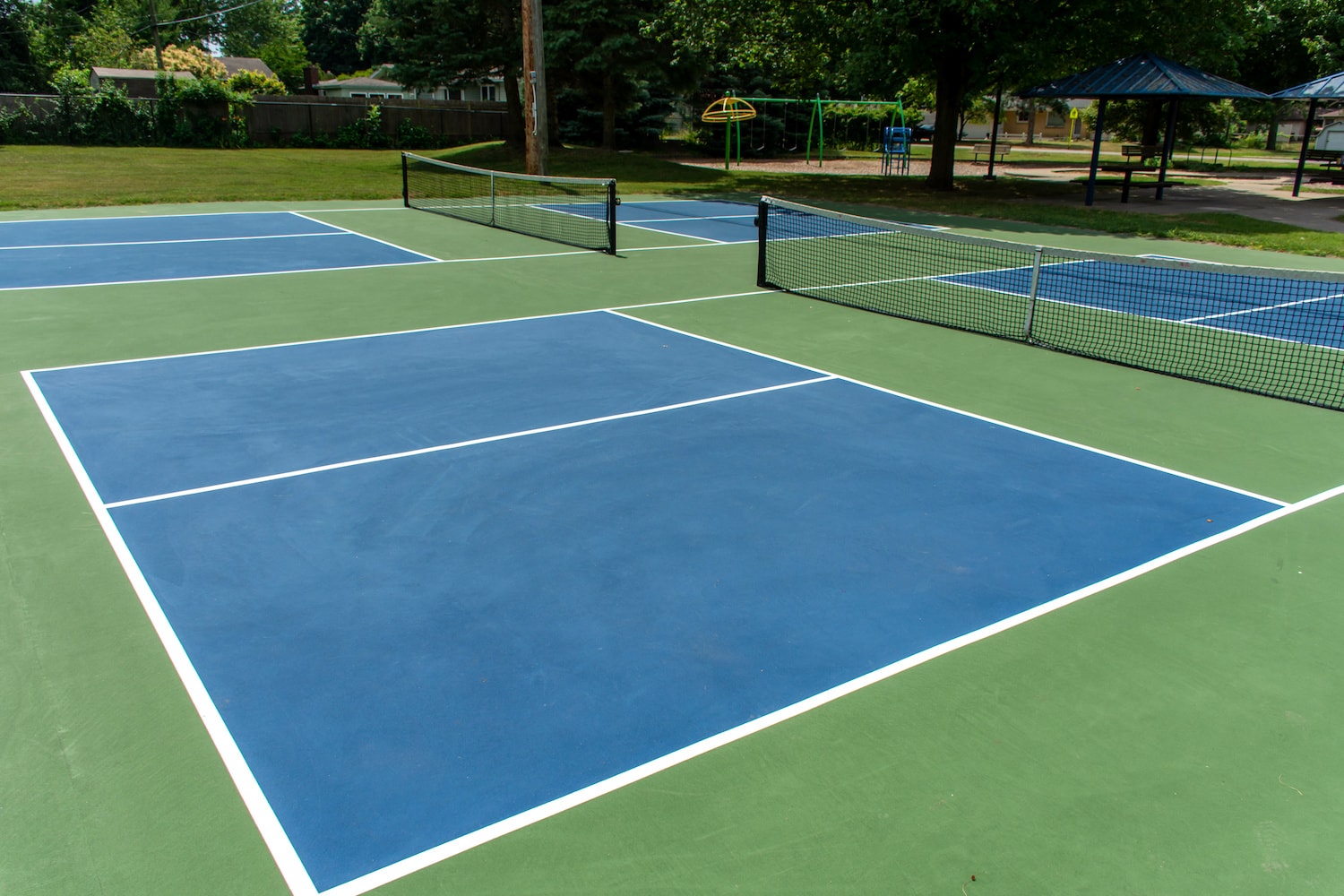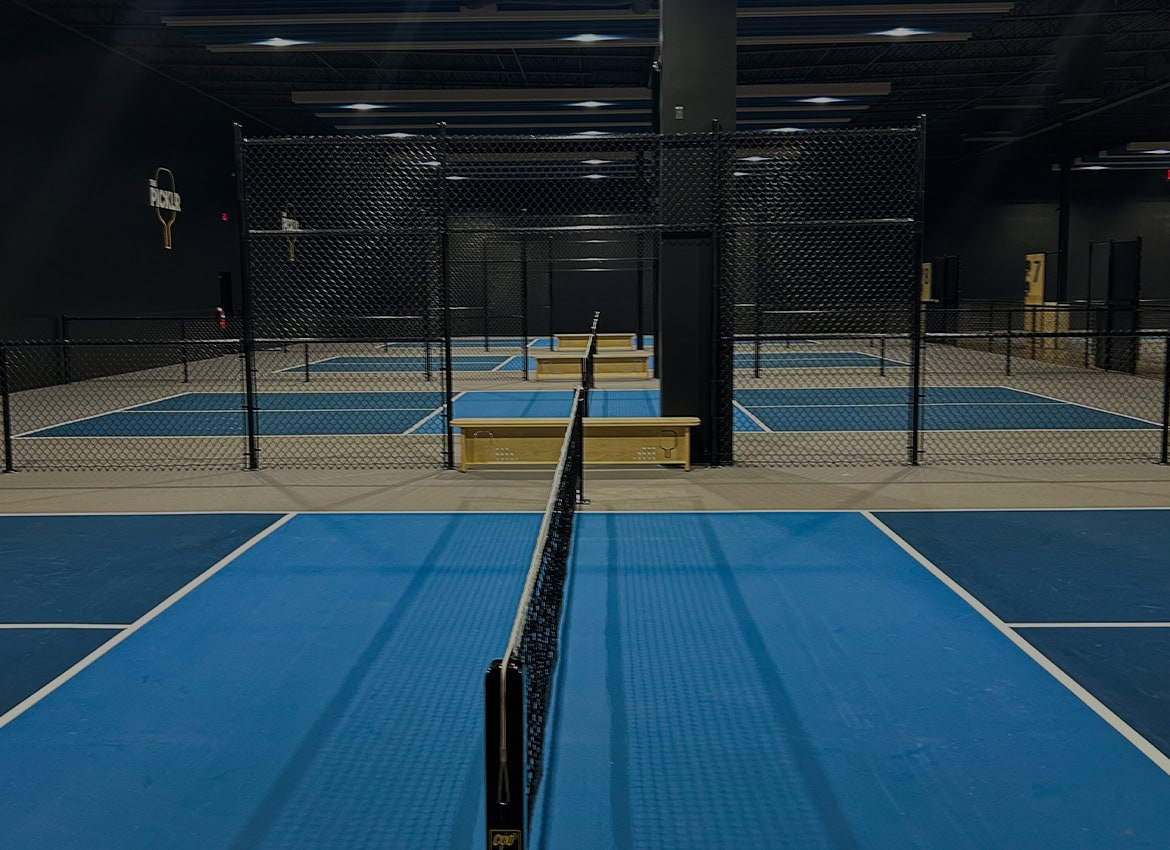The fastest-growing sport in America isn’t volleyball, curling, or even soccer. It’s pickleball! Pickleball Court Construction is booming as the fastest-growing sport in America takes off. The sport’s popularity has soared, and if you’re considering building your own court, you already know its potential. With high demand and limited competition in many areas, constructing a pickleball court could be a highly rewarding business venture.
Reference this guide to learn about:
Pickleball Court Specifications
There’s a common misconception that pickleball courts are the same as tennis courts. That’s the easiest way to offend a devout pickleball competitor! Pickleball courts are smaller than tennis courts, but you’ll still need plenty of space to build one.
Pickleball Court Construction is a wise investment as the sport continues to grow in popularity. Building multiple courts can significantly enhance your returns by allowing you to host tournaments, attract larger groups, and meet the rising demand for this fast-paced social activity. Whether you’re developing a recreational facility or expanding an existing space, multiple courts create a dynamic environment that fosters community engagement and maximizes usage. By planning for scalability, you lay the groundwork for long-term success in the thriving world of pickleball.
Follow these court specifications set by the USA Pickleball Association:
- Court dimensions: 20 by 44 feet (applicable for both singles and doubles play)
- Playing area: 30 by 60 feet (can be up to 34 by 64 feet for tournament play)
- Net height: 36 inches at the sidelines, 34 inches in the middle
You’ll need to decide if you want to build pickleball courts for recreational play or tournaments. If you intend to hold tournaments at your venue, be sure your courts are up to tournament specifications.
As you design the layout for a multi-court complex, be sure to keep accessibility in mind. Position the courts and gates so people don’t have to cross over another court to get to their court.
Indoor or Outdoor Courts? That Is the Question 🤔
Are you planning a pickleball court construction project? Whether considering an indoor pickleball complex or outdoor courts near a local park, deciding the best option can be challenging. Each comes with unique advantages and potential drawbacks, making it essential to evaluate your goals, budget, and community needs before breaking ground.

When it comes to Pickleball Court Construction, your local climate is one of the most important factors to consider. In temperate regions where people enjoy frequent outdoor activities, outdoor pickleball courts are a great choice. However, indoor courts or complexes offer a more profitable solution if you live in an area with cold winters, providing a space for year-round play during colder months.
Indoor pickleball courts also require less maintenance than outdoor options, as they are protected from the elements like rain, hail, and the sun’s UV rays. While popular in milder climates, outdoor courts can experience more wear and tear, requiring additional upkeep to stay in top condition. Choosing the right type of court construction depends on understanding your region’s climate and the needs of your community
Court Amenities to Consider in Construction
The best pickleball courts have amenities that help players and spectators feel comfortable. Besides the court itself, consider incorporating the following amenities into your construction plan (especially for indoor courts):
- Restrooms/locker rooms
- Gear storage (cubbies, hooks, etc.)
- Benches for viewing and resting
- Parking lot
- Concession stand
- Tables outside the court
- Fences (for outdoor courts)
- Lighting (for both indoor and outdoor courts)
Court Surface Material Options
You have a few material options for the pickleball court surface. Some materials are best suited for outdoor courts, while others are ideal for indoor courts. The most popular choices are:
- Asphalt: Asphalt is an affordable option for outdoor courts but requires frequent upkeep and repairs.
- Concrete: This is the most popular option for outdoor pickleball courts, as it’s affordable and long-lasting.
- Plastic tiles: Interlocking tiles can be used indoors and outdoors but are more expensive.
- Polyurethane: Polyurethane sports materials are popular in indoor courts. This material is also used for other types of indoor sporting courts.
Cost Considerations 💸
Your biggest concern is likely, “How much will this cost?” We don’t blame you— it’s on almost every entrepreneur’s mind.
Your final cost will depend on how many courts you build and how many amenities you include. Plus, building an enclosed structure will cost more than building outdoor courts.

For an 8-court outdoor complex, the budget is roughly $300,000 in total.
Indoor pickleball courts are often constructed in warehouse-like buildings. For this project, your final costs will depend on how big of a building you want to construct because warehouse costs are configured by square footage. We recommend checking our blog on warehouse construction costs here!
How to Select a Qualified Contractor 👷
Unless you have a concrete pump truck in your garage, you’ll need to hire a professional contractor to bring your vision to life.
You’ll need to partner with a concrete contractor and landscape architect for an outdoor pickleball court. Get quotes from a few different contractors. Your final price and the length of time to complete the project will depend on details like:
- Drainage
- Grading
- Site layout
- Excavation
To build an indoor court, you’ll want to work with a general contractor specializing in commercial construction. Building a house and building a warehouse are two very different skill sets! You may even opt to find a contractor that provides design-build services so you don’t need to hire an outside architect.
How to Vet a Contractor
- Ask for recommendations from colleagues
- Read online reviews and testimonials
- Confirm that they’re licensed and insured
- See how long they’ve been in business
- Ensure they have a clean and professional online presence
- Assess how reliable they are with communication
- If their prices are significantly lower than other bids, they may not provide good-quality work
- Ask how they stay on time and budget for their clients
APX Makes Construction Projects Easy 👍
We hope this guide proved helpful as you undertake to build a new pickleball court. If you want to construct an indoor pickleball court in your city, you’ll need a reliable general contractor to partner with.
Luckily, APX Construction Group has specialized in commercial construction for over 8 years! We can bring your pickleball court vision to life, all while providing friendly service and remaining on time and budget. Contact APX today for a free consultation!

